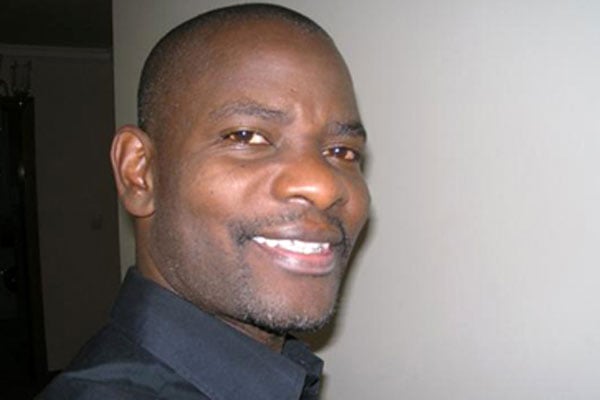Prime
How can you be a graduate and believe in witchcraft?

Author: Musaazi Namiti. PHOTO/FILE
What you need to know:
‘‘Logic ceases to work when Ugandans resort to superstition and witchcraft”
When I was in secondary school, I met a man in a town market who tried to pull a fast one on me. Luckily for me, he did not get far — in fact, he failed miserably.
The man was seated on a car bonnet/hood with some wares on sale when he beckoned me. After greeting me and asking what I had come to buy, he took off his tweed cap, placed a short piece of stick (the size of a thumb) on the cap and gently slapped it on my chest.
The stick disappeared mysteriously, or so I thought. Then, astoundingly, he told me that it had entered my body. I did not feel anything, but he told me that to get the stick out, I had to pay him.
I had some money as I had gone to the market to buy a pullover sweater, but I refused to pay and walked away. As I walked away, my right hand was firmly in the pocket of the shorts I was wearing, clenching the money tightly, just in case.
This happened 34 years ago, and I am still alive. None of the healthcare professionals I have consulted when I seek medical treatment has ever told me that there is a piece of stick stuck in my body.
Why am I sharing this anecdote? Well, as some of our readers may know, last Sunday this newspaper printed a front-page story about witchcraft at Makerere University. It is an understatement to say that this is surprising.
The university has the largest number of well-educated/highly educated Ugandans. Why do they practise witchcraft yet there is not a scintilla of evidence that it works? How can a graduate believe in superstition and witchcraft?
It is worth noting that universities teach students to think critically (at least in theory), to question authority and dogma, to believe that everything is open to question and should be believed only if there is evidence.
How is it then that the very institution where you would least expect to find witchcraft is the one practising it?
Are our cultural beliefs to blame or is it our education system that does not encourage basing beliefs on evidence?
Going by what I have been observing over the decades as a journalist, it is tempting to conclude that the Makerere witchcraft is just the tip of the iceberg.
Logic ceases to work when Ugandans resort to superstition and witchcraft. We have a good example of a former Cabinet minister and professor named Isaac Newton Ojok.
He was the minister of education in Milton Obote’s government, and when the government was overthrown, he joined rebel leader Alice Lakwena’s fighters who believed that her witchcraft could make them impervious to bullets.
But witchcraft does not fight wars, as President Museveni, the boss of bosses of fighters, knows. Last October, a video of him talking about ghosts, witchcraft and suchlike went viral. In it, Mr Museveni rubbishes superstition and witchcraft with very good examples.
He cited an example of a man he was working with who had advised his fighters to carry reeds instead of guns at the war front. Mr Museveni said he told the man that if indeed reeds protect fighters against bullets, he should be shot to test the efficacy of reeds. The man refused.
Yet many still take superstition and witchcraft seriously. From the humblest illiterate peasant to women and men with advanced degrees, some from good universities, Ugandans seem to be convinced that witchcraft works and can be used to fight enemies.
Mr Namiti is a journalist and former Al Jazeera digital editor in charge of the Africa desk
[email protected] @kazbuk




